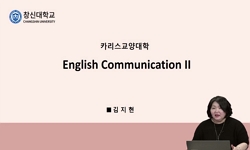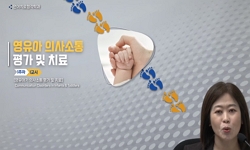Background : We analyze the contents of conversations of emergency medicine (EM) residents in a simulation using standardized patients in error disclosure education, and examine the characteristics of them. Methods : Error disclosure education program...
http://chineseinput.net/에서 pinyin(병음)방식으로 중국어를 변환할 수 있습니다.
변환된 중국어를 복사하여 사용하시면 됩니다.
- 中文 을 입력하시려면 zhongwen을 입력하시고 space를누르시면됩니다.
- 北京 을 입력하시려면 beijing을 입력하시고 space를 누르시면 됩니다.

표준화 환자를 이용한 시뮬레이션에서 응급의학과 전공의의 실수 말하기 대화 내용 분석 = Content analysis of error disclosure communication of emergency medicine residents in simulation using standardized patient
한글로보기https://www.riss.kr/link?id=A108198551
- 저자
- 발행기관
- 학술지명
- 권호사항
-
발행연도
2021
-
작성언어
-
-
주제어
error disclosure ; emergency medicine ; near miss ; communication ; 실수 말하기 ; 응급의학 ; 근접 오류 ; 의사소통
-
KDC
0
-
등재정보
KCI등재
-
자료형태
학술저널
-
수록면
17-24(8쪽)
- DOI식별코드
- 제공처
-
0
상세조회 -
0
다운로드
부가정보
다국어 초록 (Multilingual Abstract)
Background : We analyze the contents of conversations of emergency medicine (EM) residents in a simulation using standardized patients in error disclosure education, and examine the characteristics of them.
Methods : Error disclosure education program was conducted for 15 EM residents at a training hospital. One case of near miss and one case of adverse event were developed, and all 15 residents participated in each case. The contents of 30 error disclosure conversation were analyzed.
Results : Residents talked more in ‘Acknowledge what happened’ and ‘Response/Plan for care’, and it was rare to have conversations of ‘Tell me about it’ or ‘Answer questions’ in both cases. The cause of the incident was explained frankly, but when the patient blamed there were some residents who told honestly or not. There was a tendency to vaguely reveal the subject who made the mistake or attribute it to another cause. Most of residents apologized to the patient. Most of residents explained systematic recurrence prevention measures and compensation plans, but there were cases where the contents were not specific or inaccurate. Throughout the entire phase, the expression “we” was often used.
Conclusion : Residents had doctor-led conversations while error disclosure, so that they need more patient-centered conversations. When apology, empathy and regret should be conveyed in various expressions. Residents need to be properly trained and able to explain to patients about follow-up measures such as systematic recurrence prevention measures and compensation plans. These results can be a basic material for teaching error disclosure or guidelines.
동일학술지(권/호) 다른 논문
-
간호사의 감정노동과 재직의도의 관계에서 간호근무환경의 매개효과
- 대한의료커뮤니케이션학회
- 정선영
- 2021
- KCI등재
-
- 대한의료커뮤니케이션학회
- 정선영
- 2021
- KCI등재
-
- 대한의료커뮤니케이션학회
- 박일환 ( Eal Whan Park )
- 2021
- KCI등재
-
간호대학생의 문화적 공감과 간호전문직관의 관계에서 문화적 역량의 매개효과
- 대한의료커뮤니케이션학회
- 박진화 ( Jin Hwa Park )
- 2021
- KCI등재




 KCI
KCI KISS
KISS





